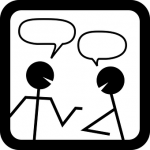Hearing voices and seeing things

Information
Here you’ll find answers to some common questions concerning hearing and seeing things that others can’t
Select the underlined questions below to see more.
If you start to notice you can hear or see things that other people can’t or you have unusual experiences that you can’t explain when you are alone, it can be a very frightening experience. Actually hearing and seeing things that others can’t is more common than we realise and is not always a sign that we have a mental health problem.
The Hearing Voices Network suggest up to 78% of the population have heard unexplained voices at some point in their life and Rethink Mental Illness estimate around 1 in 10 people hear voices that others can’t.
There are lots of reasons why we might hear or see things.
- It can commonly happen when people are stressed, distressed or very anxious.
- When people fall asleep or are just waking up.
- Have taken Alcohol or Substances or are coming off these substances.
- Due to side effects of a prescribed medication.
- Because of physical illness with fever, infections, dehydration/ hunger and insomnia being common associated factors.
- Following a bereavement people can report hearing, smelling or feeling their lost loved ones which usually brings comfort.
- Some people describe spiritual experiences that are shared among many different cultures.
- Following a traumatic incident some people have reported flashbacks where they have heard voices, seen images, smelled smells and felt physical sensations as if the incident was re-occurring.
- Sometimes following bullying or abuse people have described hearing the voice of their abuser criticising them, threatening them or ordering them to harm themselves when they have not been there.
- Sometimes we can hear voices or see things which are a symptom of a mental health problem. This can be due to depression, anxiety, trauma, PTSD, personality disorder, psychosis, bi-polar disorder, schizoaffective disorder and schizophrenia.
- People can report hearing voices talking to them, about them or overhearing a conversation.
- Some people say they hear their name being called or what sounds like footsteps, knocking on doors or bangs.
- Some people feel the voice is inside their head and others can hear the voice externally as if it is coming from outside or somewhere in the room.
- Some people report seeing faces in walls, windows or objects around the room. Shadows and figures in their room or in their peripheral vision and often as they are falling to sleep or waking.
- For some people the shape, size or colour of objects around them appear to change.
- When we are stressed/ distressed it can be difficult for our mind to interpret an overload of information from our senses. Our minds can become very overactive and misinterpret what is happening around us. It can feel as though our inner voice is an external one.
- When we are very anxious our senses are sharper. Information we see and hear around us can be heightened, distorted or exaggerated in some way. This can lead to our minds playing tricks on us.
- When we are waking/ sleeping our brains are in a dream like state which can lead us to misinterpret things. This usually goes once we are fully awake.
- Sometimes it can feel as though people’s emotions are being expressed in the form of voices they hear and things they see because they find it difficult to talk about their feelings or don’t know how to.
Most of these experiences usually resolve themselves. If the experiences persist it can be important to see your GP to check out what might be causing them.
It’s important to note that even persistent and troublesome experiences can often be resolved with talking therapies.
In rare cases where these experiences have affected a person’s social functioning and ability to work, study and care for themselves specialist support packages including medical, nursing, social and occupational support can be offered to a person and their family to enable a person to recover and return to a life they would choose to live.
For some people, prescription of a specialist medication may be helpful. Where indicated this would usually be offered following assessment with a specialist mental health practitioner or psychiatrist and may form part of a treatment plan in combination with talking support. Where medication is prescribed routine monitoring of physical health will be recommended.
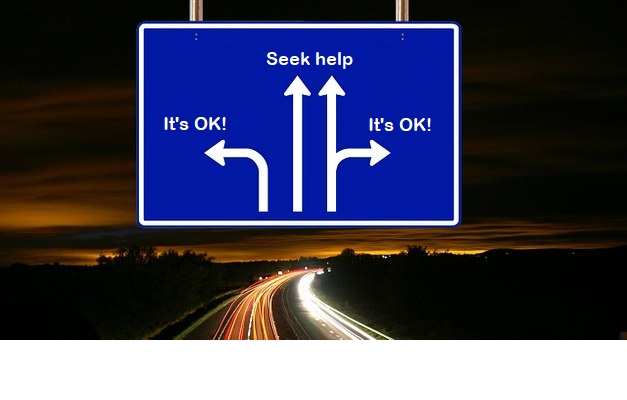
Coping with
It can be common to hear negative, critical or unkind voices. They can tell people to do things they don’t want to do or they can bully them. It can be difficult to concentrate on what other people are saying and they can interrupt the thought processes. Voices can affect close relationships and can disrupt sleep. Hearing voices can increase a person’s risk of suicide and if you feel you want to harm yourself or others you should get help right away by contacting your own Mental Health Team, the Mental Health Access Team 0800 0 328 728 (Option 1), your GP Urgently, NHS 111 service, dial 999 or visit A&E.
The following buttons are self-help suggestions

Finding help
What can you do?
- Get help early
- Talk to supportive family, friends.
- Talk to your GP
- Avoid or reduce alcohol or illicit drugs.
- Avoid putting yourself under too much stress than you need to.
- Avoid keeping things to yourself.
- Avoid negative relationships where there are a lot of stress and criticism.
- Join a support group
Select the underlined topics below to view what resources are available.

Getting more help
If you haven’t already found the help you’re looking for, you can find additional information and services which are more interactive here.












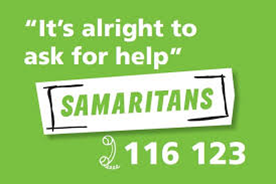



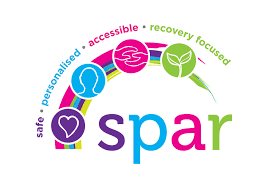
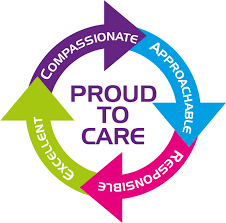




 Eating well.
Eating well.



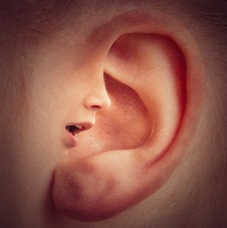 Many people find this an effective way to stay in control. If the voices tell you something you wouldn’t usually accept from someone then tell them. Disagree with them. Say no, stop or shut up. Try not to argue but say what you want to say then ask them to stop, go away or behave themselves. Remember no matter what the voices say or tell you to do that you are in control of your own body and no one has the right to tell you what to do with it. A mantra or a sentence you can repeat can often help to reaffirm what you really think for example ‘I am ok to eat my tea.’ Some people find it helpful to visualise the voice and some talk back in a calm way. Responding to them with kindness can also be quite powerful. Kind responses such as ‘thanks for noticing I feel angry at my Mum’ or ‘I’m sorry you must be so sad to say such nasty things’ can diffuse aggression and if the voices are linked to feelings responding with aggression can sometimes make this worse. If you worry about people seeing you talking back in public you could pretend you are talking on the phone.
Many people find this an effective way to stay in control. If the voices tell you something you wouldn’t usually accept from someone then tell them. Disagree with them. Say no, stop or shut up. Try not to argue but say what you want to say then ask them to stop, go away or behave themselves. Remember no matter what the voices say or tell you to do that you are in control of your own body and no one has the right to tell you what to do with it. A mantra or a sentence you can repeat can often help to reaffirm what you really think for example ‘I am ok to eat my tea.’ Some people find it helpful to visualise the voice and some talk back in a calm way. Responding to them with kindness can also be quite powerful. Kind responses such as ‘thanks for noticing I feel angry at my Mum’ or ‘I’m sorry you must be so sad to say such nasty things’ can diffuse aggression and if the voices are linked to feelings responding with aggression can sometimes make this worse. If you worry about people seeing you talking back in public you could pretend you are talking on the phone.
